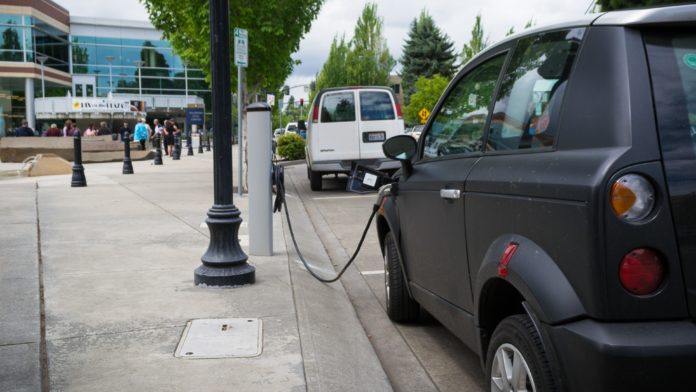Lithium-ion batteries are becoming ever more important to how we power our world: they can be found in industrial, residential, and consumer electronic settings along with the growing fleet of electric cars. Over 559 million electric vehicles are expected to be on the road by 2040 and the worldwide global storage capacity for lithium-ion batteries is set to grow 50 times larger in the same period.
Recycling the scarce materials needed to manufacture them is problematic because only around 50% are recoverable using conventional processes.
Mississauga-based Li-Cycle has developed a low-cost and environmentally-friendly alternative that can recover 80-100% of lithium-ion battery contents. Their technology puts them in a strong position to combat the growing problem of e-waste (which is up 21% in five years) while simultaneously supporting the movement towards zero-carbon technologies.
‘Wet chemistry’ produces more materials, lower emissions
In conventional lithium battery recycling processes, cobalt is the key recovery target since it is the most valuable element and also highly scarce. This is typically done via pyrometallurgy, which involves burning the batteries at high temperatures, but it’s costly, has poor recovery rates, and presents a fire hazard.
The method requires workers to discharge the batteries in a salt bath first, but the resulting toxic liquid wastewater is both dangerous and environmentally hazardous.
Li-Cycle bypasses these issues by using a wet chemistry process to separate the elements. First, they shred the incoming batteries into minuscule pieces which mitigates the fire risk. Then, the parts are put through a series of chemical reactions and separations with non-toxic properties.
Not only can the team recover the cobalt, but also other precious metals like nickel and lithium, in total making up between 80-100% of the materials.
The cobalt recovered at the end of the recycling process is equivalent in grade to that found at the source, so the materials can go right back into the battery supply chain. Li-Cycle’s method produces 60% less greenhouse gas emissions over sourcing the same amount from mining. There are also no solid waste streams and minimal water discharge as a result of the process.
“Through our process, we basically are remaking the fundamental building blocks of the battery that can go into new batteries. And we are transforming lithium batteries away from a liability into an asset,” said CEO Ajay Kochhar to Waste360.
Expansion into the US and new industry connections
Li-Cycle is due to expand into the US this year with its first plant opening in Rochester, New York. The operation will be capable of processing up to 5,000 tonnes of lithium-ion batteries per year.
“There are facilities tailored to do chemical processing, a good labour pool, a good logistics connection, and it’s relatively close to our Canadian headquarters,” said Kunal Phalpher, CCO at Li-Cycle, to Waste360.
Li-Cycle was one of the 12 Canadian companies listed in the Global Cleantech roster of the top 100 cleantech companies for 2020.
Recently, the company has heightened its focus on the electric vehicle market along with developing connections with e-waste consolidators and the energy storage sector. They received their first shipment of commercially recycled battery material last December.
“The first shipment of commercial product marks a significant milestone for Li-Cycle, on the company’s path to becoming a premier resource recovery processor, handling all types of lithium-ion batteries from a broad set of customers and applications,” commented Kochhar to PRNewswire.
“As we grow our business, we look forward to continuing to provide sustainable and technologically innovative solutions to solve our global customers’ end-of-life lithium-ion battery challenges.”








































